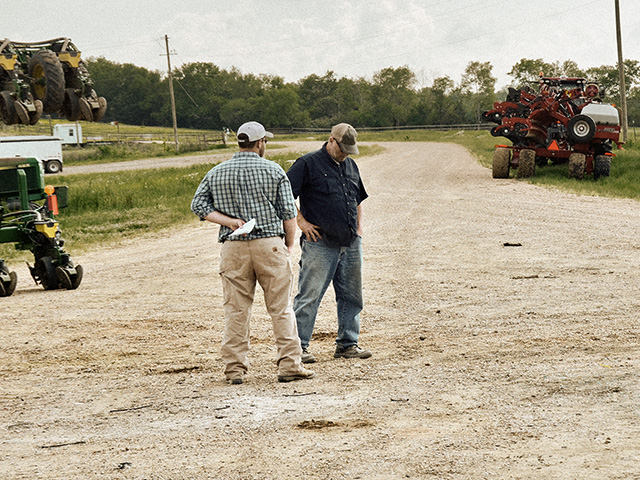Family Business Matters
Permission To Change
Many family farms and ranches have been operating for generations, their presence a seemingly permanent marker on the geographic and relational landscape of the community. They take pride in decades or even centuries of history and the land passed from grandparents and parents to siblings and cousins.
The family agricultural business, in the context of this history, exerts a type of gravitational pull on family members, intertwining them through asset ownership and emotional attachment to the vision and sacrifice of their ancestors.
While acting as a bonding agent through difficult times, the family legacy can also serve as an obstacle, blocking the path to necessary and healthy change in business structure and family relationships. Family members will endure unhappiness, tremendous amounts of conflict or dire economic circumstances because of the guilt associated with making changes to the assets and organizations they've inherited.
People often need permission to consider significant changes. That may sound odd: As adults, we can make our own decisions. But, we are often locked into assumptions about the future and constellations of relationships more than we like to admit. It can be hard to free ourselves from ourselves without someone granting us permission in the following areas.
P[L1] D[0x0] M[300x250] OOP[F] ADUNIT[] T[]
OPERATE DIFFERENTLY
As the industry evolves, consumer preferences shift and agricultural policy changes, owners and operators of farms and ranches also need to adapt. The resources you control as a land-owning family could be more valuable or sustainable when considering trends in recreation, conservation or urban populations. Farming a certain way or growing a certain crop because "we've always done it that way," particularly when farm equity is eroding, creates difficulty for the future.
Almost everyone goes through a similar cycle of frustration with the current system. But, those who survive also explore new models and adopt new practices. To give you the confidence to make adjustments in your business, visit with others you respect about how they decided to change.
EXIT A PARTNERSHIP
Many siblings or cousins wind up in business together because of a prior generation's planning. Estate tax laws, a desire to treat children equally or assets that aren't easy to liquidate are passed in entities or undivided interests, leaving the next generation to navigate the complexities of ownership and management on top of their familial ties.
Sometimes family members will have better relationships if they aren't in business together. Recognizing the possibility of a different ownership model and granting yourself permission to jointly explore the benefits of dissolving the current structure may lead to a different ownership arrangement and thus a better pattern of interaction for your heirs.
SELL LAND
For many families, talk of selling land purchased with hard-won dollars is the quickest way to draw the ire of one's elders. Discussing a sale seems disrespectful to those who sacrificed so that future generations could have a proverbial golden goose.
If you sell land to finance a lavish lifestyle, buy cars or toys, or go on trips, your ancestors may indeed roll over in their graves. But, if you convert an asset into a new investment, if you maintain or increase your portion of the wealth given to you, you demonstrate the principle of stewardship. You start to move beyond being a family business toward becoming an enterprising family, adaptable to the goals and desires of future generations.
Considering a change to the business, ending a partnership or selling land can be emotionally and intellectually difficult. But, the results can be rewarding, and it all starts with giving yourself permission to think and talk about changes to the family business.
> Write Lance Woodbury at Family Business Matters, 2204 Lakeshore Dr., Suite 415, Birmingham, AL 35209, or email lance.woodbury@kcoe.com.
[PF_0820]
(c) Copyright 2020 DTN, LLC. All rights reserved.



